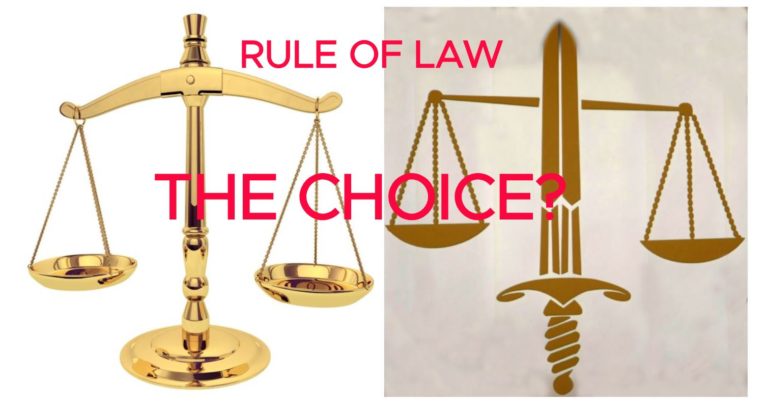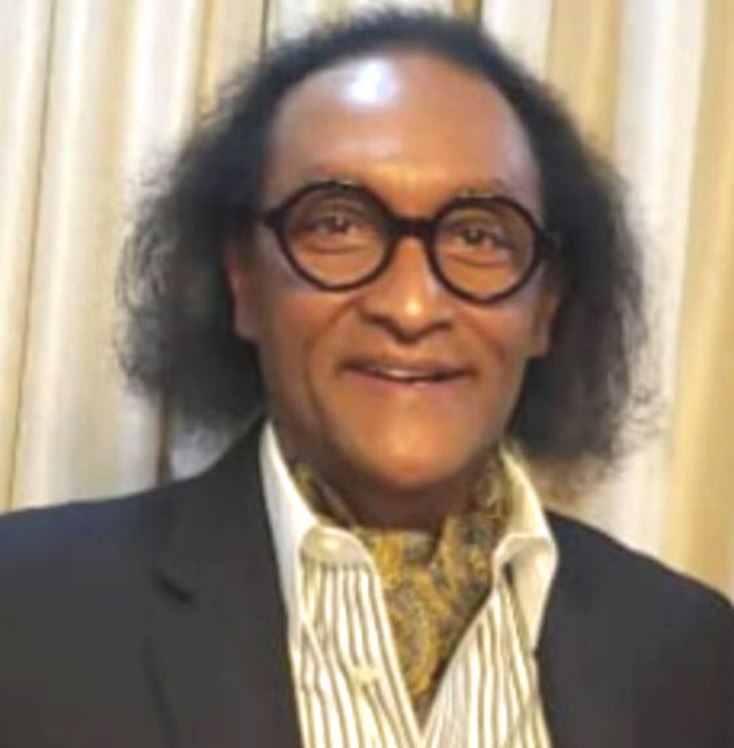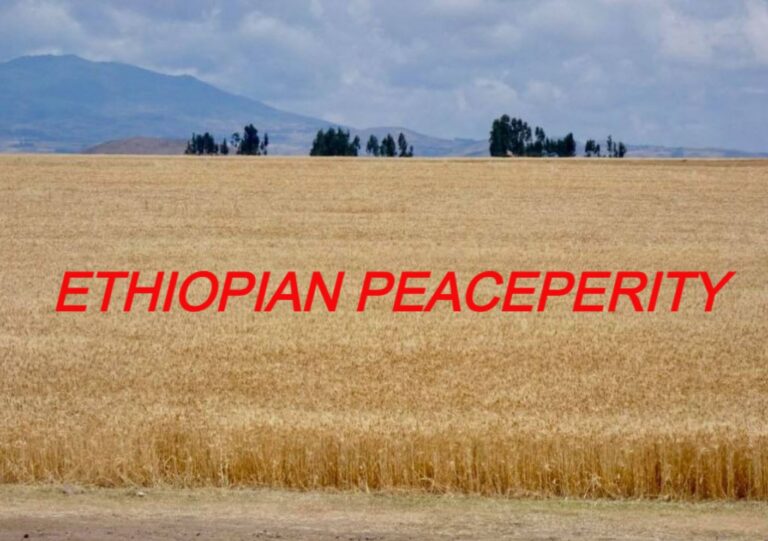A Farewell to Champions!

Mission to America
They came on a mission to America. It was mission blessed by the Ethiopian people. It was a simple mission: “Go share the gospel of democracy, freedom and human rights among Ethiopians in America. Thank them for all they have done for us, and tell them to keep hope alive. We shall overcome!”
But the official mission statement was more solemn: “Express Kinijit’s appreciation and gratitude to Ethiopians in America who worked tirelessly to secure the release of the people’s leaders. Engage them in a conversation on the future of democracy in their homeland. Mediate disputes among Kinijit supporters and help bring organizational cohesion and harmony. Engage in conversations with American policy makers and help them understand the urgent need for freedom, democracy and human rights in Ethiopia. Ask Ethiopians to lend a helping hand in advancing a democratic agenda in Ethiopia.”
And on September 9, 2007, we received five missionaries of democracy from Ethiopia. Birtukan Midekssa, Berhanu Nega, Hailu Araya, Gizachew Shiferraw and Brook Kebede. For nearly two months now, they have been toiling at their mission, day and night, rain or shine; and without respite. Everyday we piled upon them one set of demands over another; one set of to-do list over another set of requests. We taxed their patience. We consumed their time. We burdened them with our problems. And we even forced them to navigate a perfect storm of controversy along the way.
The facts speak for themselves. For nearly two months, we worked this Delegation to the limits of their human endurance. Never gave them a day off completely free from responsibility. We shuttled them to 12 American cities. In each location, they made themselves available for questioning. No question was off limits. They spent countless hours mediating. They walked the halls of Congress.
In all of this, they never complained. Not once. When we shuttled them from coast to coast, they never protested. When their planes were delayed for hours, they took it in stride. When they were told they’d stay one night here, and another night across the country, they readily agreed. They never asked for a day off. They never asked for time to rest. When they got weary, they made sure it was not obvious. When they did not feel well, they did not make excuses. They showed up at every event. They were always ready to perform their mission. They were on the job. Even when we asked them to be in two places at once, they never objected to the request on the grounds that it violates the laws of physics. They just split into smaller groups and showed up.
Can We Say, “Thank You” to the Delegation? In the ordinary course of things, it would be proper and fitting to say “THANK YOU! THANK YOU VERY MUCH!” But they chastised us when we tried to thank them. They challenged us, “Why should you thank us for doing our duty to our country?” Come to think of it, they are absolutely right! Why should we? We will not thank them for doing their duty to their country and people with dignity, honor and pride.
But we will thank them for what they have done above and beyond the call of duty! That we will! We must.
So, we will thank them for being on the clock exactly 24 hours after they landed at Dulles Airport on September 9, 2007. We thank them for pulling double shift, and often more, during the entire time they stayed in the U.S. We thank them for standing with us in the streets and parks, in the baking summer sun and sweltering humidity, as we made our voices heard. We thank them for hoofing it up and down the halls of Congress with us as sought to build support for democracy, human rights and freedom in Ethiopia. We thank them for lending their voices in the international media, and for telling the truth every time. We thank them for always being ready to perform their duty, day or night. We thank them for so many other things they have done above and beyond the call of duty.
Mission Accomplished?
The bottom line is: Did they succeed in their mission? There is no doubt in our minds they did. They came to spread the gospel of freedom, democracy and human rights among Ethiopians in America. They did that evangelical work dutifully. They were tasked to engage us in a wide ranging conversation on democracy in Ethiopia. Not only did they engage us, they thrilled us. That is the truth.
They challenged us to take our best shots. “Ask any questions you want. We will not leave the meeting hall until every question is answered adequately,” they said. And we obliged. We asked them all sorts of questions, from the silly to the sublime. They answered all of our questions. No evasion. No fabrication. No falsehood. No smooth talk. No B.S. Straight talk. Clear thinking. They gave it to us raw and unadulterated. In the process, they earned our confidence with their honesty and integrity. They earned our respect. They earned our love.
So what did they do in Congress? They did what they had done all along, and even when they were in jail. They talked about the rule of law, the need to build democratic institutions, peaceful resolution of disputes, national reconciliation, democratic liberties and human rights. Everything they said in Congress was what they had been talking about in the 8-point Kinijit principles. No surprise there. They were jailed for defending these principles in 2005. But they were honored in the U.S. Congress with an invitation to tell their story. That their story is the story of all freedom-yearning people merely affirms the fact that they are on the right side of history, and at the center of the universal movement for human rights and justice.
How did the “mediation” go? That was the first order of business when they arrived in the U.S. They met and conferred with the disputing factions. They held private discussions over a period of time. Mostly they listened and asked questions. They remained impartial and neutral. They sought the middle ground where opposing factions could build harmony, trust and unity. And they did their best to replace strife with harmony, restore trust where there is suspicion, and use reason to enhance understanding and achieve clarity. They did their best, but sometimes the best may not be good enough. Time will tell if they succeeded in this endeavor. But as the old saying goes, “Our best success comes after our greatest disappointments.”
They were told to explain the financial hardships of the organization, and seek a helping hand from us if possible. They laid the facts before us. Many of us gave to the extent of our desires, if not our abilities. We gave because we believed in a democratic future for our homeland. Whether they are judged a success in their fundraising mission is ultimately a judgment on our generosity, not their efforts or diligence. If they succeeded, it is because we made it happen. If not, it’s because we could not spare that extra dime.
But we believe they succeeded magnificently in their fundraising mission. But opening our wallets on one or two occasions is not as important as opening our hearts and minds permanently. And we have opened our hearts and minds to them. We will support them all the way in their mission to bring democracy to Ethiopia.
They told us they came to thank us and tell us how much they appreciated what we had done for them. And they thanked us profusely. But why should they thank us? Like they said, you don’t thank someone for doing their duty. It was our duty to seek their release during their unjust imprisonment. It was our duty to champion the cause for which they sacrificed their liberties. It is our moral duty to stand up against injustice and to defend the rights of the downtrodden and the dispossessed. But we do understand. As Birtukan said, “Yes, we were imprisoned in body, but you and millions of our supporters were imprisoned with us in spirit.” True. But we all know there is One Spirit that no one can ever imprison!
Bumps in the Road
Like any tour, bumps in the road are unavoidable. This Delegation withstood the slings and arrows of outrageous accusations along the way. But they took it all in stride. They never overreacted. But they reacted with facts, analysis and reason. When some fanned the flames of discord, they held their peace. They never played the blame game. They never cast aspersions on anyone. But they stood their ground. They set the record straight, with the truth. In the end, they arrived at their destination with their heads up high and their spirits uplifted.
What Makes This Delegation Tick?
It is remarkable how much one can learn from just observing. And I tried to figure out what makes this Delegation tick? I think I know.
Team Work. The first thing one notices about these five individuals is that each one of them left one large piece of luggage at Bole Airport, distinctly marked “EGO.” When you see them at work, one thing stands out prominently: team work. They work like fingers on a hand. They work independently of each other, but come together like a fist when they have to. They work as a single unit. They share and discuss ideas, ask each other tough questions, and listen to each other intently and with sincerity. They seem to follow the old adage: “It is amazing how much you can accomplish when it doesn’t matter who gets the credit.” No one in this bunch is out for individual glory. One rarely hears them using the nominative singular pronoun “I”. It is really unusual for individuals in the political arena to have so much team spirit and team action. That is why, I think, there is so much trust among themselves.
Collegial Respect. Another obvious fact about this Delegation is the collegial respect they have for each other. They show respect for each other not only in public, but in their private moments as well. They exchange views and ideas while showing respect to each other and the ideas expressed. One does not hear them undercutting each other or trying to outwit one another. The younger members accord the older ones due respect, and the older members respond in kind. The head of the Delegation, though younger in age, is given respect commensurate with her official responsibilities. For the outside observer, such collegial respect is a clear indication of good faith in the intentions of each other, and a prerequisite for effective team work.
Magnanimity. For most of us, it is easy to fall prey to pettiness and to seek revenge for real and imagined wrongs. But it takes a certain cultivation of mind, an elevation of the spirit to see the forest for the trees, to look at the big picture and restrain oneself. When they came to Los Angeles, they were asked why they did not come out and “attack” those who spread vicious rumors and lies about them. Dr. Berhanu said, “What does one gain by calling another a liar. You hold a person in high regard for so long, and then for one reason or another turn around and belittle him. What does anyone gain from that?” That is magnanimity, a principled refusal to be petty and mean-spirited. It is the ability to take the moral high ground when gravity pulls you to the gutter.
Courage. These individuals carve out five profiles in courage. They have a special kind of courage, what one might call civic or moral courage. It is the kind of courage that empowers you to refuse to give in even after 21 months in jail. Because they are armed with such courage, they refuse to abandon their principles or retreat from the truth no matter what. They continue to stand up and speak truth to power. They refuse to be intimidated. They were asked, “What security do you have against the possibility of being thrown in jail when you go back?” They answered matter-of-factly. The only security they have are the Ethiopian people, and the rest us in the Diaspora. They said the alternative is seek asylum. “That will never happen,” they said. They will go back no matter what. Now, that is COURAGE that is borne of moral certitude to do the right thing, every time.
Patience. Most of understand how difficult it is to show tolerance, compassion, understanding, and acceptance toward those who tax our patience. We often respond harshly to those who may not agree with us, or try our coping abilities. It is rare to see these individuals showing impatience with each other, or others. They did not show anger or annoyance to manifestly provocative and falsely-premised questions. They are not upset by unintelligent comments. They plugged along with a great sense of humor.
Honesty. It is said honesty is the best policy. These five individuals practiced this policy very scrupulously. No deception. No evasion. No doubletalk. No mendacity. No lies. Straight talk. That’s the way it ought to be!
Humility. These are five unpretentious and modest individuals. They are quite remarkable. When one expresses sympathy for their prolonged detention, they respond by pointing out the suffering of millions. When they are showered by words of appreciation for their sacrifices, they point out the ultimate price paid by so many others in defense of democracy. When they are congratulated for their efforts in trying to defend democracy, they pass the credit on to the people of Ethiopia. Just ordinary folks with extraordinary love for their country. They show no arrogance or boastful pride. They don’t proclaim themselves to be the “Leaders”. They are just the salt of the earth, ordinary people with deep convictions.
A Personal Tribute to Champions!
It’s been an honor and privilege to meet members of this distinguished Delegation. I have never met anyone of them before their arrival in the U.S. I knew very little about them. But I am mighty glad I had the chance to make their acquaintance and friendship.
And now they must return home after successfully completing their U.S.A. Tour. How do I feel? As Shakespeare wrote, “Parting is such sweet sorrow.” Like most Ethiopians who had the privilege to meet them over the past weeks, I have been enriched and inspired by their passionate commitment to democracy, freedom and human rights. I am thankful for their brief presence in America.
History will remember their tour for a few things. Their presence in our midst validated our basic belief that the power of ideas and truth combined with the courage of ordinary men and women will always triumph in the end. Ronald Reagan said, “No weapon in the arsenals of the world is so formidable as the will and moral courage of free men and women”. And Marian Wright Edelman, on the opposite side of the ideological spectrum said, “You just need to be a flea against injustice. Enough committed fleas biting strategically can make even the biggest dog uncomfortable and transform even the biggest nation.”
They have proven to all of us that when you get enough committed and courageous fleas biting in the cause truth and justice, no weapon in the arsenal of the world can defeat them. This will be the lasting legacy of this Delegation’s U.S.A. Tour.
This Delegation has also proven to us all that democracy is not about individual personalities or political parties or ideology. It is really about defending and practicing certain principles. It is about the rule of law, and about accountability and keeping government and leaders honest. It is about building institutions to administer justice, and to bring to the bar of justice those who have committed injustice. It is really about giving everyone a chance to be heard, and a chance to make a difference.
The mere presence of the Delegation in America was a lesson in patriotism to many of us. The kind of patriotism which says you can be proud of your Ethiopian heritage, and your American citizenship. You can love America and love Ethiopia too because both countries are bound by the same cord of liberty. Their presence amongst us made a difference. They made us stronger. More determined. More committed. More involved in the destiny of our homeland. We are mighty glad to have them.
When they return home, no doubt they will remember the political discussions and debates, and questions and answers and the long flight delays, the whole life-out-of-a-luggage bit, the bland cuisine and all of the other inconveniences and aggravation. And I secretly hope they will not begrudge us for not giving them time off, for not taking them on the tourist circuits, and for not giving them a break. They want to go home. We understand. They have much business to do there.
I am confident that after they return home and think of the weeks they spent with us, they will remember not only the hard work and the hardships, but also the thousands of people who greeted them at the airports and the meeting halls and in the streets. I am sure that when they think of the overwhelming love, the deep gratitude and genuine appreciation they received from their fellow countrymen and women, their eyes will well up in tears because there is no bigger gift we could give them to take home. We have given them our hearts, and kept theirs with us. It is an even and fair exchange.
Farewell, Champions!
Farewell, Champions! If anyone should ask you, “How was your trip to America?”, just tell them flat out: “We Came! We Saw! We Conquered!” Godspeed! You are all welcome back anytime, Friends!






